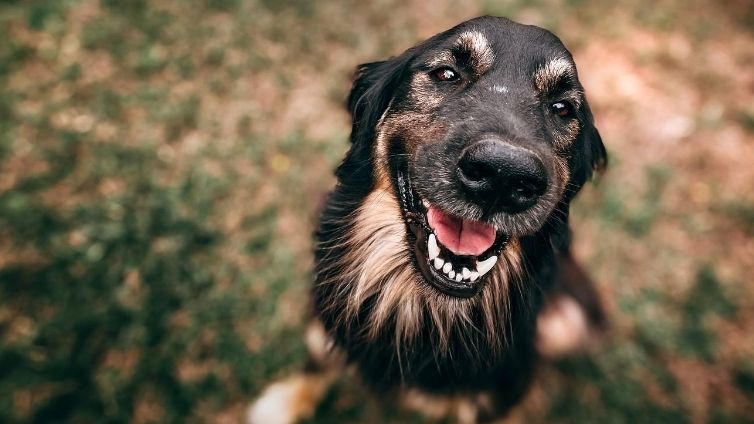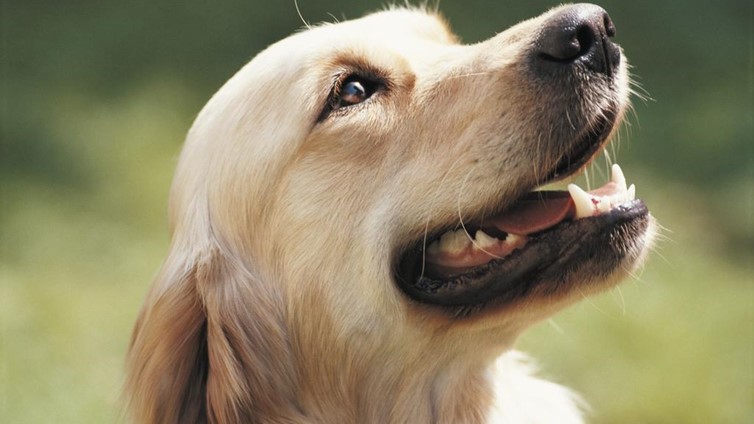Getting a dog is a serious commitment. Not only that you promise to give someone your time, energy, and love, but you are accepting to be responsible for a living being for the next 7 to 15 or more years.
Before you get the first dog you see on the street home, make sure that you are 100% committed to your new decisions.
Be honest about your lifestyle, so you can find a dog breed that really can co-live with you.
What kind of dog are you looking for? Do you need a running partner? A perfect couch potato? Or a dog who can spend hours hiking? Remember that breed is no guarantee of temperament or even likes and dislikes, so it’s best to know the individual animal.
If you want to adopt a dog, you can always check the local shelter to see if your perfect companion in there.
Don’t limit yourself to merely calling the shelter, without going there and meeting the dogs in person.
What Is A Responsible Dog Breeder?
If you want a specific breed, the chances are that you will meet one or a few breeders. This is one of the most important milestones when it comes to getting a healthy dog.
You may know that owning a dog is a huge responsibility. However, it doesn’t mean that others share your opinion or are willing to find a responsible breeder.
You may see a box of puppies along the road for only a few bucks, but that can usually mean only one thing – trouble. A responsible breeder doesn’t sell their puppies to the first person who shows up with cash in hand.
Unfortunately, unsuspecting people often buy puppies from puppy mills. This results in purchasing puppies in poor health or with temperament problems that may not be discovered right away, which can lead to even more severe problems.
This is why it’s important to know what responsible breeders are and how to find them.
You Want A Responsible Breeder
If you have already planned to purchase a dog, you want a responsible breeder. You may ask what’s the difference – breeder is a breeder, right? Well, no.
There is a huge difference between a responsible breeder and someone who breeds dogs just to make quick cash without caring about the mothers or puppies’ health.
A responsible breeder can tell you generations behind the dogs you see in their home or kennel. Also, a responsible breeder will never let a puppy go too young before the puppy has proper socialization and immunization.
Separating dogs to early from their litter can lead to numerous physical and mental problems later on.
Also, a responsible breeder is ready to give you his or her time and answer any questions you have, whether you’ve already committed to purchasing a puppy.
They are there for you, and they won’t give you a puppy if they are not confident that you aren’t a good fit for their puppy.
A responsible breeder does not sell you a puppy. They want you to show them that their puppy will be a part of your family and that you will treat him right.
They will also say that they are available for any information, advice, and they will tell you that if something happens in your life that pushes you off the track, they want the puppy/adult/senior dog back – because they really care.
Pro tip: If you are thinking about breeding your male dog make sure that you talk with a trusted and responsible dog breeder for pro inputs.
Sharing Is Caring
Being a breeder isn’t an easy task.
They have to plan, to learn continuously, spend the long sleepless night getting the puppies here, train the puppies, check their healthy, caring about them, and the mother, making sure that the puppies were ready when the time comes to join their new families.
Simply sad, a responsible breeder is your and your’s dogs best friends.
Breeding a litter is a serious task, and goes beyond simple business. Breeders must:
- Understand the commitment
- Choose a suitable mate
- Know dogs’ genetics
- Finalize stud contract
- Perform many pre-breeding health checks
- Oversee the mating
- Prepare for pregnancy and whelping
- Take care about puppies
- Always consult veterinarian
- Keep puppies warm, clean and well-fed with the right food
- Register litter
- Send puppies to their new family
- Encourage new owners to register the dog, chip, neuter or spay
- Check on the dog’s well-being from time to time
Signs of a Bad Breeder or a Backyard Breeder
The term “backyard breeder” is sometimes used to describe dog breeders with little experience or knowledge. This type of breeder usually breeds dogs without taking the time to make proper genetic matches in the first place.
These breeders have an unusual practice of not registering dogs with the appropriate kennel club or breed club.
A backyard breeder is not the same as those who puppy mills, but they are still not considered responsible dog breeders.
Why You Should Avoid Some Dog Breeders

Some breeders are all about making the profit. Their profit comes from so-called purebred dogs or miniature size dogs that they own.
They may let dogs reproduce without knowing their family history, and it’s not uncommon to breed dogs from the same litter, which, for the result, has puppies with severe health problems.
On top of that, they pay little or no attention to genetics health issues in bott he parents and the puppies. Plus, they would often charge less money for the puppies than a responsible breeder.
At first, these dogs may seem less expensive, but in the long run, you will end up paying more for ‘cheaper’ dogs, once health issues start appearing. In many cases, breeders won’t take the puppies back if something goes wrong, opposite to responsible breeders.
Never trust a breeder who won’t guarantee the puppies.
There are cases where dogs are accidentally bred, and results are a litter of puppies. In some extreme cases, even a family decides to breed dogs’ just once’ or ‘just for fun.’
Their methods are not recommended as the result could be unwanted or unhealthy puppies.
So, if you plan on having litters from your dog, make sure that you talk with your veterinarian first, then find a reputable breeder and have safe and secure homes for puppies.
These people are often not aware of the fact that their actions are unethical. Be aware that even if you get a free puppy from this situation, you could quickly end up with an unhealthy dog.
Again, responsible breeders will always ask to spay and neuter your dog if you aren’t sure about the dog’s history.
How to Avoid Bad Dog Breeders
If you want a purebred puppy, you need to search for a dog breeder. Again, you can check first with local animal shelters, because many purebred dogs can be found there.
In case you don’t find a purebred puppy that you want at an animal shelter, you need to search for the perfect breeder.
Avoid buying puppies from a pet store – this is supporting a business that puts profit over its animals’ welfare.
Simply said, this isn’t something that a true dog lover would do. When you find a dog breeder, your next step is to check references. Find other similar that purchased from that breeder, and ask them about their experience.
Check that the breeder is affiliated with the local and national breed clubs and a national kennel club (such as the AKC).
Most importantly: make sure that you see the facilities and meet the puppies’ parents, mother at least.
Always Ask Questions
When you are interested in something or someone, you should feel comfortable asking questions. Therefore, you should be able to ask the dog to breeder various questions without issues.
A responsible breeder will actually appreciate that you care enough to do research. You will probably have a million questions, but some general inputs may serve as great questions:
- What type of care is required for a dog?
- Are there any specific needs that the breed has?
- How long have you been breeding dogs?
- Do you sell dogs to pet stores, online, or through puppy brokers or wholesalers?
- Can I see the facilities where you breed?
- Can I see the house for dogs?
- What genetic issues can breed demonstrate?
- Can I see the veterinary records of the puppies and their parents?
- Does the puppy I buy come with a guarantee?
- What happens if a dog is diagnosed with a hereditary disease?
- What happens if I can’t keep my dog anymore? Can you provide references from the owners of puppies from previous litters?
Good to know: Responsible dog breeders won’t best age before they turn 18 months
Other Warning Signs of a Bad Breeder
If the answers to the above questions are appropriate, there are still some things that you should think about and evaluate.
If you think something doesn’t ‘feel right,’ you should do more research on the breeder. Here are some signs that indicate you are dealing with an irresponsible breeder:
- Dogs seem to be in poor health
- They breed a lof of unregistered breeds, such as Goldendoodles, etc.
- Dogs have no titles and there are is no history on why the breed was originally bred.
- There is no mandatory spaying/neutering.
- The breeder doesn’t screen you or asks about your home environment.
- If the breeder allows taking the dog before the proper age of a minimum of 8-12 weeks of age.
- The breeder advertises rare colors, size, or other traits.
- The breeder sells puppies for enormously reduced prices.
- They breed dogs before the age of two.
When talking to or meeting with a dog breeder, you must consider all facts. You should also listen to your gut. If something doesn’t feel right, ask questions.
If you have any doubts about breeders’ responsibility, simply walk away. Always search for a responsible dog breeder.
The Bottom Line
If you are looking to get a new puppy from a dog breeder, you may be wondering how to find the right breeder. While finding the responsible breeder, you should do your best to avoid the wrong ones.
Ensure that you do your best to test the breeder by assigned the right questions and demanding to see the facilities.
A simple look at a dog’s home environment should be a good first step toward determining if a breeder is honest. As soon as you get your puppy, make sure that you take him to the veterinarian’s office the same day.





















